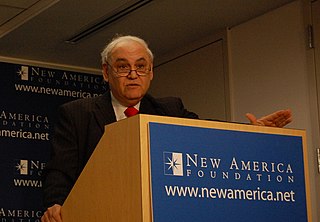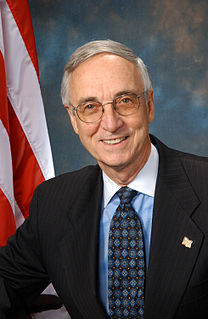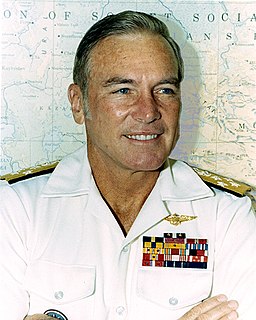A Quote by Stephen Harper
It was the removing of a regime that was hostile, that clearly had the intention of constructing weapons systems.
Related Quotes
On the justification for the war, it wasn't related to finding any particular weapon of mass destruction. In our judgment, it was much more fundamental. It was the removing of a regime that was hostile, that clearly had the intention of constructing weapons systems. ... I think, frankly, that everybody knew the post-war situation was probably going to be more difficult than the war itself. Canada remains alienated from its allies, shut out of the reconstruction process to some degree, unable to influence events. There is no upside to the position Canada took.
America has shown we are serious about removing the threat of weapons of mass destruction... We now know that Saddam Hussein had the capacity to produce weapons of mass destruction.... We know he had the necessary infrastructure because we found the labs and the dual-use facilities that could be used for these chemical and biological agents. We know that he was developing the delivery systems - ballistic missiles - that had been prohibited by the United Nations.
Change of regime with respect to Iraq had nothing to do with this; it had everything to do with the fact that Iraq had weapons of mass destruction. And at the time change in regime as a policy came into effect in 1998, it was seen as the only way to compel Iraq to get rid of its weapons of mass destruction.
We do know that the Iraqi regime has chemical and biological weapons. His regime has amassed large, clandestine stockpiles of chemical weapons - including VX, sarin, cyclosarin and mustard gas. His regime has amassed large, clandestine stockpiles of biological weapons—including anthrax and botulism toxin, and possibly smallpox.
Iran aggressively pursues these weapons and exports terror, while an unelected few repress the Iranian people's hope for freedom. The Iraqi regime has plotted to develop anthrax, and nerve gas, and nuclear weapons for over a decade. This is a regime that has already used poison gas to murder thousands of its own citizens - leaving the bodies of mothers huddled over their dead children.
We believe, from everything we have been told by the intelligence community, by 12 years of history with Iraq, by the experience of the U.N. inspectors and by other intelligence agencies in other countries that Saddam Hussein had the intention to develop weapons of mass destruction and to have such weapons, and that was a sound judgment which I still believe to this day because he had had them in the past, he'd used them in the past.
Regime change has been an American policy under the Clinton administration, and it is the current policy. I support the policy. But regime change in and of itself is not sufficient justification for going to war--particularly unilaterally--unless regime change is the only way to disarm Iraq of the weapons of mass destruction pursuant to the United Nations resolution.
It remains our policy to change the regime until such time as the regime changes itself. So far, we cannot be sure that he is cooperating or he [Saddam Hussein] is acting in a way that could give us comfort, or should give the international community comfort, that he is giving up his weapons of mass destruction. He continues to give us statements that suggest he is not in possession of weapons of mass destruction when we know he is.



























